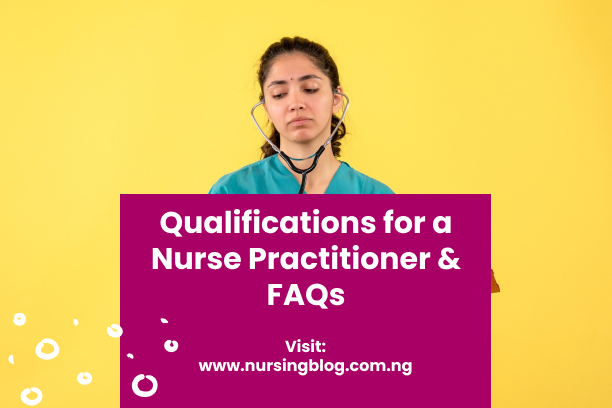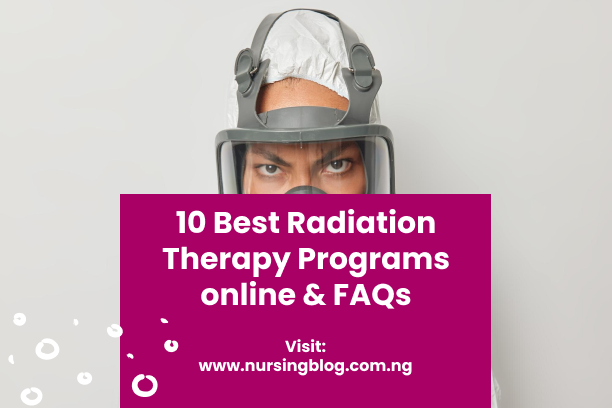Qualifications for a Nurse Practitioner: Job Outlook & FAQs
This article explores the Qualifications for a Nurse Practitioner, skills, and steps needed to embark on your NP journey. Nurses play a vital role in healthcare, and Nurse Practitioners (NPs) take that role a step further. NPs offer a wider range of services than Registered Nurses (RNs), often acting as primary care providers, diagnosing illnesses, and prescribing medications. If you’re a registered nurse seeking career advancement or an individual drawn to a comprehensive healthcare role, becoming a Nurse Practitioner could be the ideal path.
How to Become a Nurse Practitioner (A Step-by-Step Guide):
- Earn Your Registered Nurse (RN) License: This is the foundation. You’ll need to complete an accredited nursing program (ADN or BSN) and pass the NCLEX-RN exam for licensure.
- Gain Registered Nurse Experience: Most NP programs require experience as an RN, typically one to two years. This allows you to solidify your clinical skills and gain valuable patient interaction experience.
- Pursue a Master’s Degree (MSN) in Nurse Practitioner Studies: Choose a program accredited by the Commission on Collegiate Nursing Education (CCNE) that aligns with your desired NP specialty like family practice, pediatrics, or mental health.
- Pass the National Certification Exam: Each NP specialty has a corresponding national certification exam. Passing this exam is mandatory for practice.
- Obtain State Licensure: Meet your state’s specific licensure requirements, which may involve additional exams or practice hours.
Job Outlook for Nurse Practitioners:
The Bureau of Labor Statistics projects a 40% growth rate for Nurse Practitioners between 2022 and 2032, much faster than the average for all occupations.
READ ALSO: Pediatric Nursing Salary Guide & FAQs
This rapid growth reflects the increasing demand for primary care providers and the flexibility NPs offer in various healthcare settings.
Qualifications for a Nurse Practitioner and Skills for Nurse Practitioners:
- Master’s Degree in Nursing (MSN): A prerequisite for NP practice.
- National Certification: Demonstrates competency in your chosen NP specialty.
- Strong Clinical Skills: Advanced assessment, diagnosis, and treatment skills are crucial.
- Communication Skills: Excellent communication with patients, families, and other healthcare professionals is essential.
- Critical Thinking and Decision-Making Skills: NPs independently manage patient care, requiring sound judgment.
- Leadership Skills: NPs often collaborate with other healthcare providers and may lead healthcare teams.
What Qualifications Do You Need to Be a Nurse Practitioner in the UK?
The path to becoming a Nurse Practitioner in the UK differs slightly. Registered Nurses in the UK can pursue a Master’s degree in a specific NP specialty after registration.
What Are the Requirements to Work as a Nurse in the USA?
To work as a Registered Nurse in the USA, you’ll need to complete an accredited nursing program and pass the NCLEX-RN exam for licensure.
READ ALSO: Top 10 Best Accredited Online schools for mortuary science & FAQs
What is a Nurse Practitioner’s Salary in the UK?
According to Indeed, the average salary for a Nurse Practitioner in the UK is around £48,000 per year.
How to Become a Nurse Practitioner in Canada?
The path to becoming a Nurse Practitioner in Canada varies slightly by province. Generally, Registered Nurses with a Bachelor’s degree in Nursing (BSN) and relevant experience can pursue a Master’s degree in a Nurse Practitioner specialty.
Conclusion
Becoming a Nurse Practitioner offers a fulfilling career path with a strong job outlook and the opportunity to make a significant impact on patients’ lives. By carefully considering the qualifications, skills, and required steps, you can transform your passion for nursing into an advanced practice role with expanded responsibilities and professional growth.







